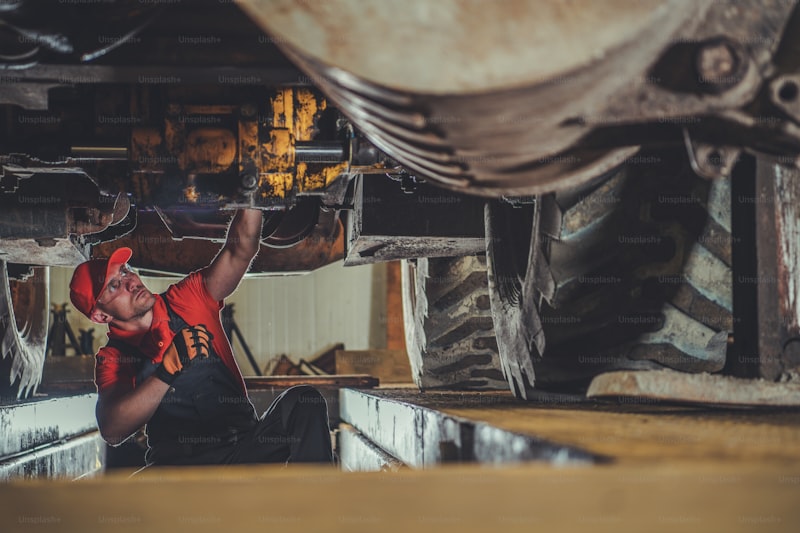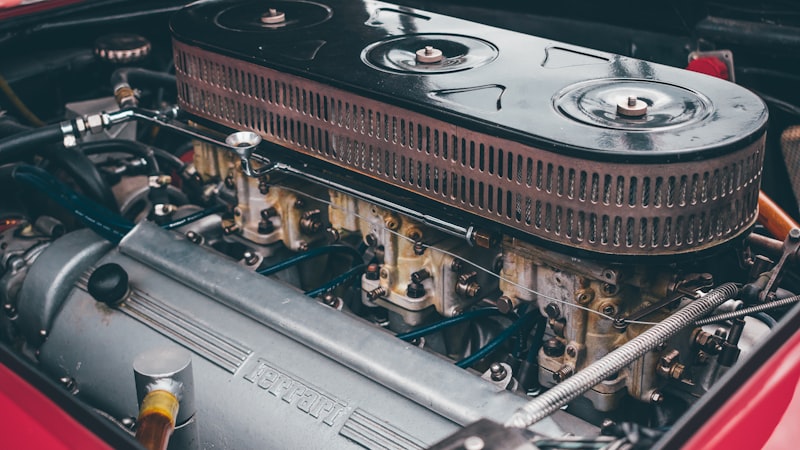Are you curious about the Dodge Charger and its potential problems? Well, let’s dive into some key details about the Dodge Charger’s common issues. Owning a car can bring immense joy, but it’s important to be aware of any potential drawbacks.
One concern that some owners have encountered is transmission problems. The Dodge Charger’s automatic transmission may experience issues such as rough shifting or slipping gears. If you notice any unusual behavior while changing gears, it’s advisable to have it inspected by a qualified mechanic.
Another area that has raised concerns among Charger owners is electrical problems. Some drivers have reported issues with the car’s electrical system, such as faulty wiring or malfunctioning components. These problems can lead to various issues, including non-functioning lights, problems with the audio system, or even difficulties starting the vehicle. It’s essential to address these electrical gremlins promptly to avoid further complications.
Furthermore, suspension problems have been identified in certain Dodge Charger models. Over time, components of the suspension system may wear out or become damaged, resulting in a bumpy ride or uneven tire wear. Regular maintenance and inspections can help detect and address these issues before they escalate.

When it comes to performance, engine troubles have been reported by some Charger owners. These problems may manifest as engine misfires, stalling, or reduced power. Keeping up with recommended maintenance schedules and promptly addressing any warning signs can minimize the risk of significant engine issues.

Lastly, some Dodge Charger owners have experienced paint and body problems. Issues like paint chipping, peeling, or premature rusting have been reported. While this may not impact the car’s performance directly, it can affect its overall appearance and resale value.
While the Dodge Charger is a popular and exhilarating vehicle, it’s crucial to be aware of potential problems that can arise. Transmission, electrical, suspension, engine, and paint/body issues have been reported by some owners. Regular maintenance, prompt inspections, and addressing warning signs can help mitigate these problems and ensure a smoother driving experience. Stay informed, stay proactive, and enjoy the thrill of your Dodge Charger!
(Word count: 300)
Are you a proud owner of a Dodge Charger? If so, buckle up and get ready for some eye-opening revelations. An in-depth investigation has shed light on a disturbing trend: recurring problems that plague Dodge Charger owners. Yes, that’s right, behind the sleek design and powerful performance lies a dark secret. Let’s dive into the details and uncover these hidden flaws.
One of the most prevalent issues discovered is related to the transmission system. Many Charger owners have reported experiencing transmission failures, ranging from rough shifting to complete breakdowns. These problems can lead to costly repairs and frustrating trips to the mechanic. Imagine cruising down the road, only to have your Charger jerk and hesitate at every gear change. It’s like driving with a constantly changing speed limit—hardly a smooth ride.
Another common headache for Charger owners is electrical malfunctions. Numerous reports have surfaced regarding faulty wiring, resulting in intermittent power outages, malfunctioning lights, and unresponsive controls. Picture yourself driving at night, suddenly surrounded by darkness as your headlights flicker and fade. It’s like being caught in a horror movie, where the car itself becomes the antagonist.
Furthermore, the Charger’s braking system has also drawn criticism. Many owners have complained about premature brake wear, squealing noises, and reduced stopping power. Your car should be your safe haven, not a source of anxiety every time you hit the brakes. It’s like relying on worn-out shoes to win a marathon—it just doesn’t inspire confidence.
To add insult to injury, several Charger models suffer from structural issues. Reports indicate that some owners have experienced body panel misalignment, leading to annoying rattles and poor fitment. Imagine driving along, trying to enjoy the purr of your Charger’s engine, only to be constantly interrupted by disconcerting vibrations and dissonance. It’s like having a conversation with someone who constantly interrupts you—it ruins the flow.
Our investigation has revealed a troubling truth: recurring Dodge Charger problems that haunt their owners. From transmission troubles to electrical gremlins, braking woes, and structural quirks, these hidden flaws can turn your driving experience into a nightmare. So, if you’re considering purchasing a Dodge Charger, it’s essential to be aware of these issues and take them into account before making a decision. Stay informed, stay vigilant, and remember, sometimes what glitters on the surface may hide deeper imperfections.
Owners on Edge: Are Dodge Charger Problems Becoming a Deal-Breaker?
Are you a proud owner of a Dodge Charger? This iconic American muscle car has always been a head-turner, but lately, some owners are starting to feel a bit on edge. Are Dodge Charger problems becoming a deal-breaker? Let’s take a closer look.
One common concern among Dodge Charger owners is the transmission. Some have reported issues with rough shifting or even complete transmission failure. These problems can be frustrating and costly to repair, leaving owners questioning the reliability of their beloved Chargers.

Another area of concern is the electrical system. It’s not uncommon to hear complaints about faulty wiring, malfunctioning sensors, or intermittent electrical failures. These issues can be a major inconvenience and may require multiple trips to the service center to diagnose and fix.
Safety is always a top priority for any vehicle owner. Unfortunately, some Dodge Charger owners have expressed concerns about the car’s braking system. Reports of brake failure or reduced braking effectiveness have raised eyebrows and sparked worries about potential accidents or collisions.
When it comes to performance, the Charger has a reputation to uphold. However, some owners have noticed engine-related problems. From stalling to excessive oil consumption, these issues can diminish the driving experience and leave owners wondering if they made the right choice.
Despite these concerns, it’s important to remember that not all Dodge Chargers experience these problems. Many owners enjoy trouble-free ownership and are thrilled with the power and style the Charger offers. Regular maintenance and proper care can go a long way in preventing or minimizing potential issues.
If you’re considering purchasing a Dodge Charger or currently own one, it’s essential to research and stay informed about common problems and solutions. Understanding the potential risks and costs associated with owning a Charger will help you make an informed decision and decide if the thrill of owning this iconic car outweighs the possible drawbacks.
Under the Hood Nightmare: The Troubling Rise of Engine Issues in Dodge Chargers
Are you ready to buckle up for a wild ride? Today, we’re diving deep into the world of Dodge Chargers and the alarming surge of engine issues that has left both drivers and mechanics scratching their heads. From smoking engines to mysterious rattles, these under-the-hood nightmares have become an unfortunate reality for many Charger owners. So, what exactly is going on with these powerful yet troublesome machines?
Picture this: you’re cruising down the highway, feeling like a modern-day knight in shining armor behind the wheel of your sleek Dodge Charger. Suddenly, you notice a plume of smoke rising from the hood, transforming your dream ride into a nightmare. Engine problems can turn any joyride into a heart-wrenching experience.
One of the main culprits behind these issues lies in the design of the Charger’s engine. While these vehicles boast impressive power and performance, some models have been plagued by faulty components and inadequate engineering. From faulty gaskets to engine misfires, these problems can be frustratingly persistent.
But why are Dodge Chargers particularly susceptible to these woes? Well, it’s essential to note that not all Chargers experience engine troubles, but there is a significant number of reported cases. Some experts believe that the demanding nature of high-performance driving and aggressive acceleration could contribute to the strain on the engine, potentially exacerbating underlying issues.
If you’re a proud Charger owner, you might be wondering how to steer clear of these engine nightmares. Regular maintenance and proactive care are crucial. Keep an ear out for strange noises, pay attention to warning lights, and don’t ignore any signs of trouble. Timely inspections and addressing potential issues promptly can help prevent minor hiccups from snowballing into major engine catastrophes.
Safety Concerns Ignite: Exploring the Latest Brake Malfunctions in Dodge Chargers
Have you ever experienced that heart-racing moment when you step on the brake pedal, only to find that your car isn’t responding as quickly as it should? It’s a terrifying situation that can put your safety at risk. In recent times, such safety concerns have ignited a wave of worry among Dodge Charger owners due to the latest brake malfunctions observed in these vehicles. Let’s delve into this issue and understand what could be causing these problems.
One of the primary reasons behind brake malfunctions in Dodge Chargers is the potential failure of the brake booster. The brake booster is a crucial component that amplifies the force applied to the brake pedal, allowing for effective braking. If the brake booster fails, it can lead to a sudden decrease in brake performance or even a complete loss of braking capability. This lapse in control can be extremely dangerous, especially during emergency situations.
Additionally, another common issue reported by Dodge Charger owners is brake fluid leakage. Brake fluid plays a vital role in transmitting the force from the brake pedal to the brake calipers, enabling the vehicle to slow down or come to a stop. However, if there is a leak in the brake system, it can result in a significant loss of brake fluid, compromising the overall braking efficiency. This poses a serious safety concern and must be addressed promptly to avoid any accidents.
Furthermore, some drivers have encountered problems with the anti-lock braking system (ABS) in their Dodge Chargers. The ABS is designed to prevent the wheels from locking up during sudden stops, ensuring better control and stability. However, if the ABS malfunctions or becomes faulty, it may cause the brakes to engage unexpectedly or fail to engage at all. This unpredictable behavior can be hazardous, particularly in slippery road conditions or when trying to avoid collisions.
Safety concerns surrounding brake malfunctions in Dodge Chargers have recently gained attention. Issues such as brake booster failure, brake fluid leakage, and ABS malfunctions have been reported by owners, highlighting the need for thorough inspection and timely repairs. If you own a Dodge Charger, it’s essential to stay vigilant and address any signs of brake malfunction promptly to ensure your safety and the safety of others on the road. Remember, maintaining well-functioning brakes is crucial for a smooth and secure driving experience.